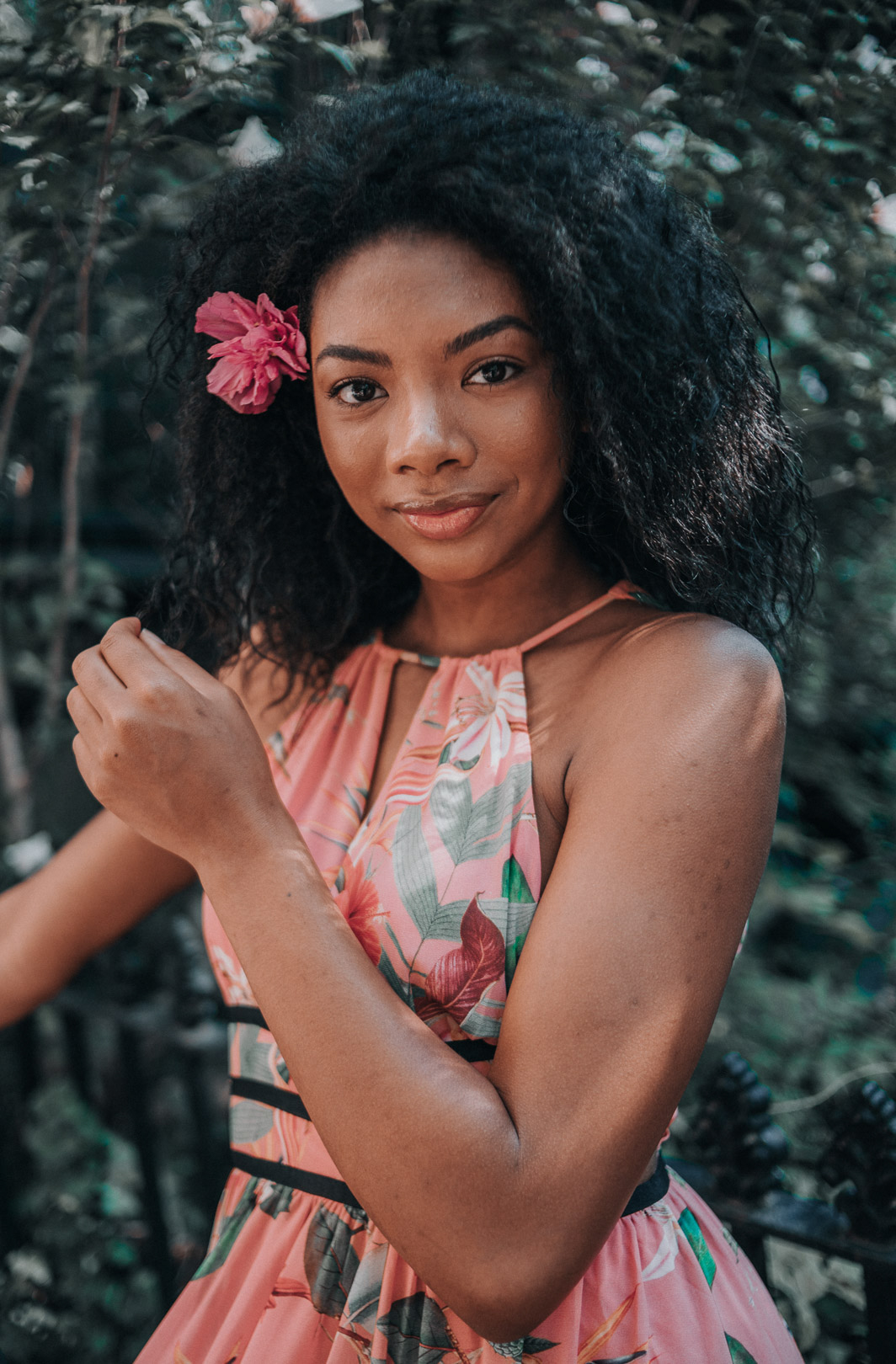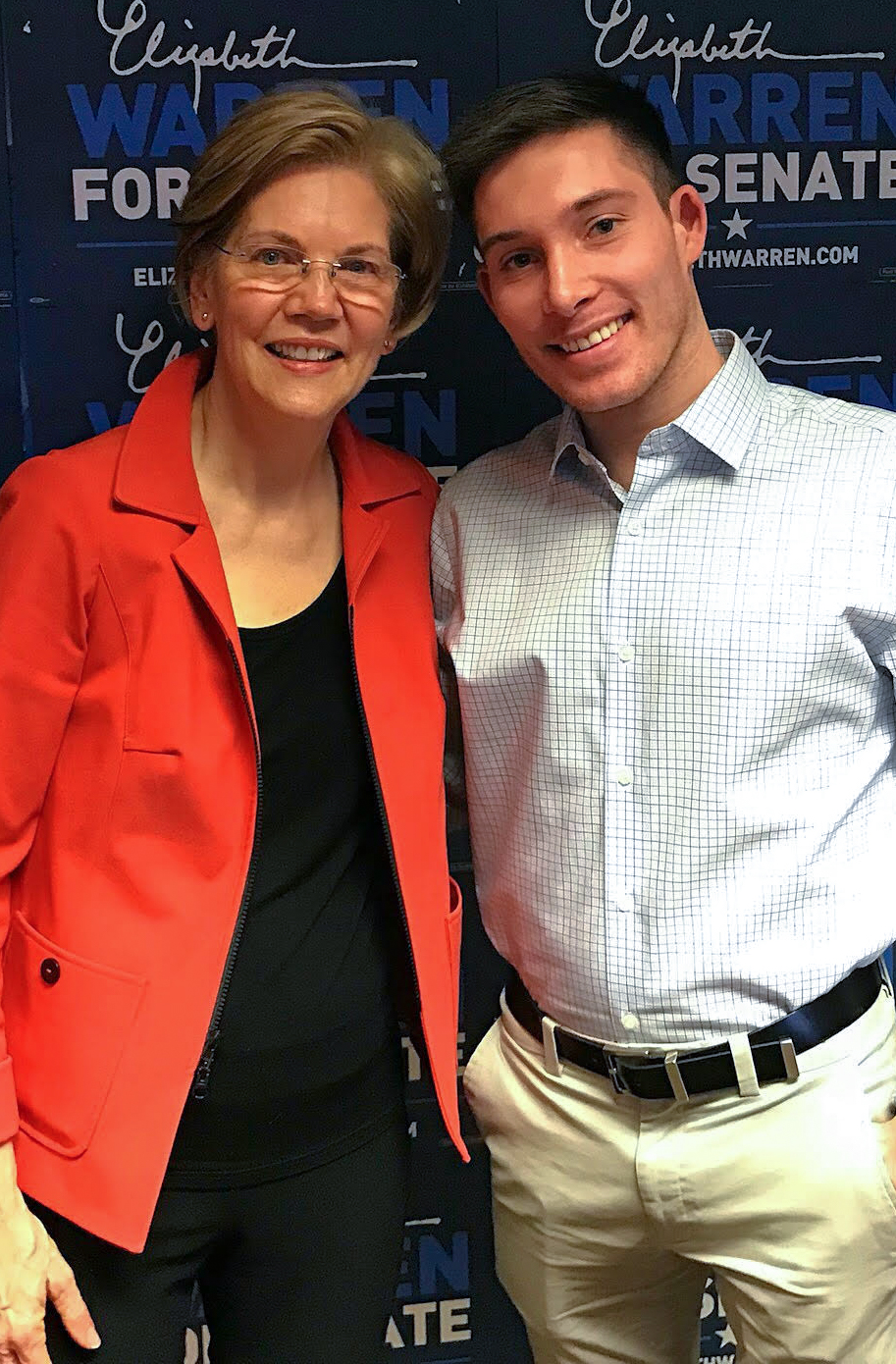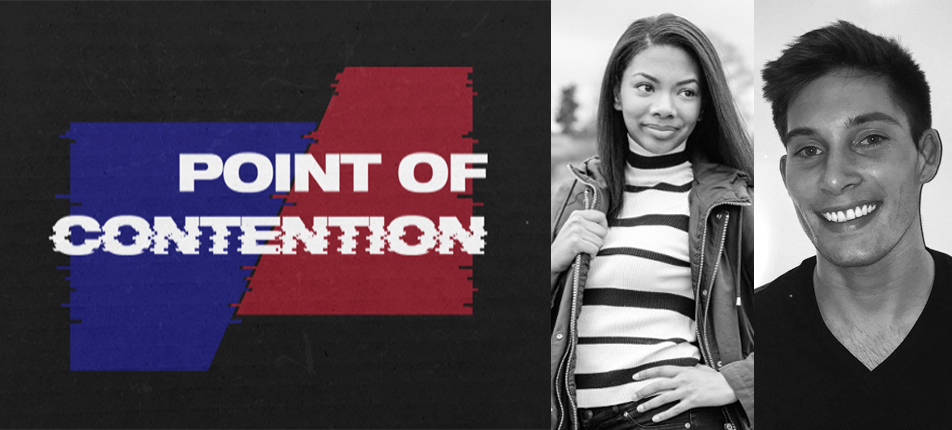While working at a website design firm, Journalism student Danae Bucci was looking for an outlet to maintain her skills and stay connected to the world of journalism. It was then that she came up with the idea for a podcast that would look into the divisive topics of today. This would become Point of Contention.
In its first episode, Danae sat down with guest Dan Kennedy, an associate professor of journalism at Northeastern University, to discuss the current political climate and the treatment of the press. Since then, the show has covered topics ranging from the opioid crisis to gun control. Soon after launching, Danae brought on Political Science student Christian Stafford to help produce the show. We were lucky enough ask Danae and Christian a few questions to learn more about the show, their work experience, advice they have for other students, and more. Read what they had to say below!
How did Point of Contention start?
Danae: I created the podcast while on co-op over the summer. I wanted to keep my journalism skills sharp while working at a website redesign firm. Through that experience, I thought starting a podcast would be the easiest way to stay in tune with my journalistic interests while also working full time.

What would you say is the goal of the podcast?
Danae: The goal of the podcast is to keep people informed with public policy issues that affect them everyday. This could range from things like abortion to gun control. We purposefully choose ‘volatile’ topics because those are the ones society typically shies away from discussing. But without discussing those topics, how are people supposed to stay informed? That is why we interview nonpartisan experts on topics that touches everyone’s lives.
How do you pick the subject for each episode?
Danae: Each topic is chosen by deciding what issues are relevant at the moment. We like to ask ourselves, what are people talking about? An example of this is when the midterm elections were happening, I sat down with State Representative Ken Gordon to discuss election laws and election fraud.
How do you go about researching the subjects and finding guests for the show?
Danae: When researching subjects and finding guests we typically read articles, research or watch the news to become as informed about the topic as possible. This leads us to be able to ask intelligent questions and get to the root of each topic, which is what our listeners deserve. When finding guests, we like to cast a wide net of people who may be knowledgeable on the topic. This can range from scientists, legislators or lawyers who have practiced in the topic for years.
What have been some of the biggest challenges you have faced with making the show?
Danae: The largest challenge we have faced up to this point is finding traction with viewers. We believe that podcasts could be the future of news, especially with the decline of appointment television and newspaper subscriptions dropping, but finding a dedicated base takes time and a lot of work. We’re confident that we will find a base who are fans of our work.
Christian: I would have to agree with Danae — it can be, and has been, quite difficult to grow our audience and social media following. As Danae said, it takes time to develop an audience and a following, but we hope that our work speaks for itself and shows people that we are worth listening to, in order to understand important public policy topics.
Danae, before working on the podcast, what was your experience in Journalism like?
Danae: Starting my freshman year I have taken it upon myself to get as much experience as I can prior to graduating. My freshman year journalism professor, Carlene Hempel, suggested that we reach out to editors of our local papers to see if they might need help around the newsroom. That blossomed into me becoming a freelance reporter for several papers in the Boston area. I also was able to be the sports reporter for my towns local broadcast station for a summer and the lead copywriter for the school living arts magazine, Artistry Magazine.
You have also recently started writing at 7 WHDH NEWS, how has the experience been?
Danae: Getting newsroom experience is so important prior to graduating. My dream job out of college is to become a multimedia journalist in a local news station. Although finding on camera positions for stations can be far and few between while still pursuing my degree, I was lucky enough to be offered a job at WHDH as a newswriter. The day to day can vary and is determined by how much breaking news could be happening. I typically write several voice overs for the anchors in the news shows and help communicate what graphics, images and videos should accompany each story. I look forward to being able to apply these skills to more jobs in the future.

Christian, in the past year you have worked for both Senator Elizabeth Warren, and Congressman Seth Moulton, what type of work were you doing?
Christian: While I have definitely learned a lot about government and politics through my coursework at Northeastern, my experiences interning and working in government offices while being a student were very beneficial in teaching me the ins and outs of how government, and Congress specifically, operate.
At Senator Warren’s office, I assisted the immigration team with their heavy casework load, which entailed speaking to constituents both in person and over the phone about their immigration issues, writing letters of support for constituents’ family members wishing to obtain visitor visas and every other issue in between.
I served as a Staff Assistant in Congressman Seth Moulton’s district office in Salem, MA for my final co-op placement. My main duty was to serve as the supervisor of the internship program, but I assisted with everything from answering the phones, helping the casework team, office administration and staffing the Congressman at events.
Both opportunities were essential in keeping me educated and informed about important matters in the world of government and politics.
How have these experiences impacted your work on the podcast?
Christian: I believe that the experiences that I’ve had in government help to make me an informed producer and editor, it helps me in deciding which issues are important and worth exploring further in our podcast.
What are your recommendations for how people can stay informed?
Christian: Spend a few minutes each day, preferably in the morning, to look at the news — make an effort to look at multiple news sources, not just the ones that you agree with or politically align with. It’s important to see different ideas and points of view.
Danae: I love listening to podcasts. I can mindlessly listen while doing other things or driving. I also think subscribing to newsletters is an amazing way to stay informed without any effort because the headlines go straight to you.
Do you have any tips for others who are considering going into podcasting?
-
- Christian: Find a topic you have an interest or expertise in and go from there!
Danae: Definitely have a concise idea of what you want to cover and have a plan of attack so you can hit the ground running.
New episodes of Point of Contention are released on the 1st and 15th of each month. They are also in the process of developing a weekly series to briefly cover the biggest headlines of the week.


